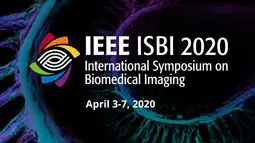Deep Variational Autoencoder for Modeling Functional Brain Networks and ADHD Identification
Ning Qiang, Qinglin Dong, Bao GE, Tianming Liu
-
Members: FreeSPS
IEEE Members: $11.00
Non-members: $15.00Length: 13:16
03 Apr 2020
In the neuroimaging and brain mapping communities, researchers have proposed a variety of computational methods and tools to learn functional brain networks (FBNs). Recently, it has already been proven that deep learning can be applied on fMRI data with superb representation power over traditional machine learning methods. Limited by the high-dimension of fMRI volumes, deep learning suffers from the lack of data and overfitting. Generative models are known to have intrinsic ability of modeling small dataset and a deep variational autoencoder (DVAE) was proposed in this work to tackle the challenge of insufficient data and incomplete supervision. The FBNs learned from fMRI were examined to be interpretable and meaningful and it was proven that DVAE has better performance on neuroimaging dataset over traditional models. With an evaluation on ADHD200 dataset, DVAE performed excellent on classification accuracies on 4 sites.



